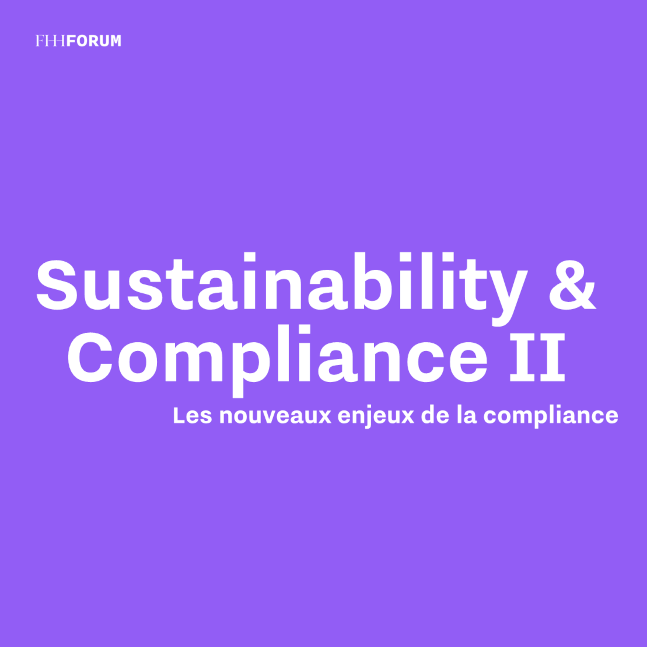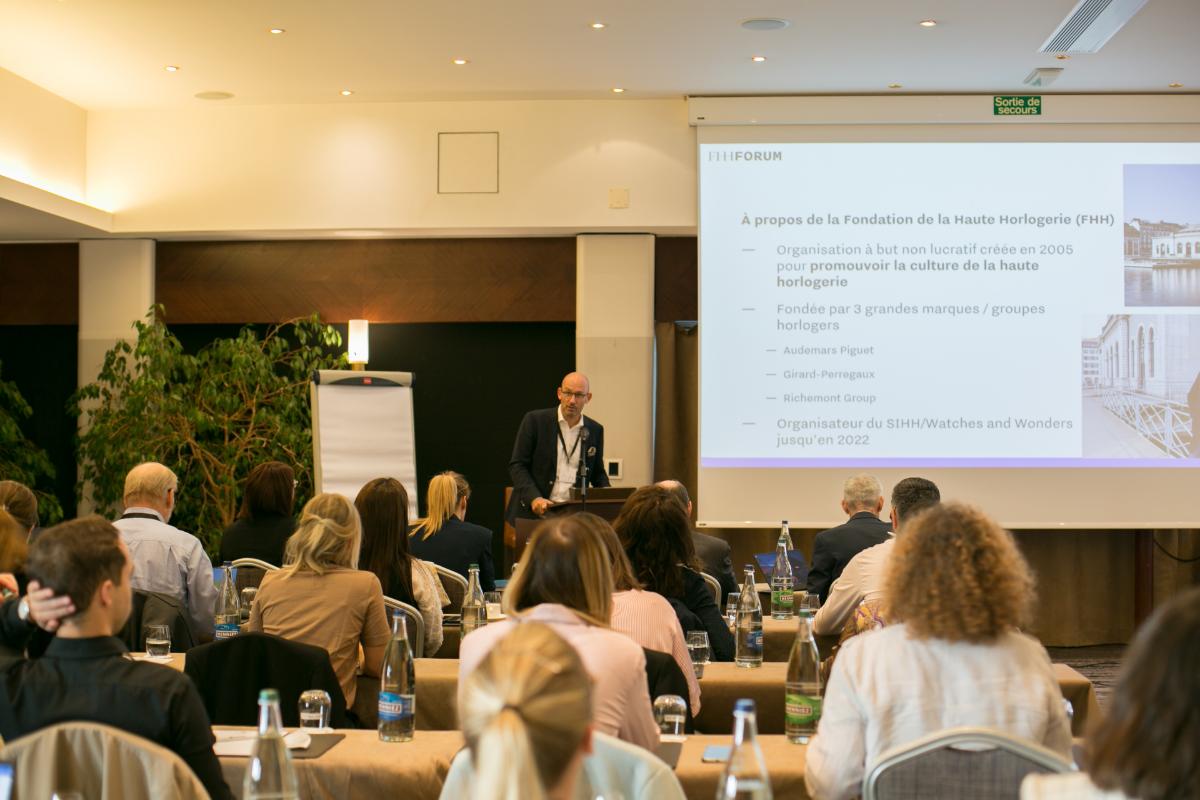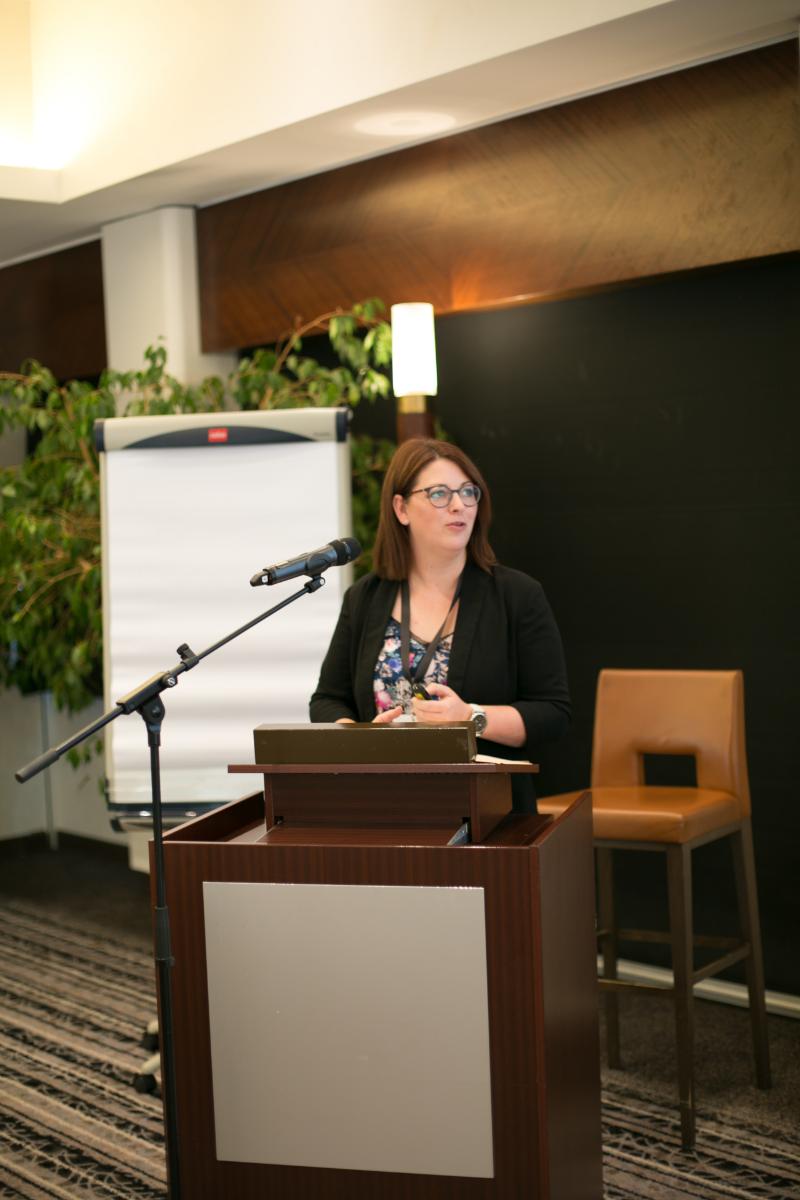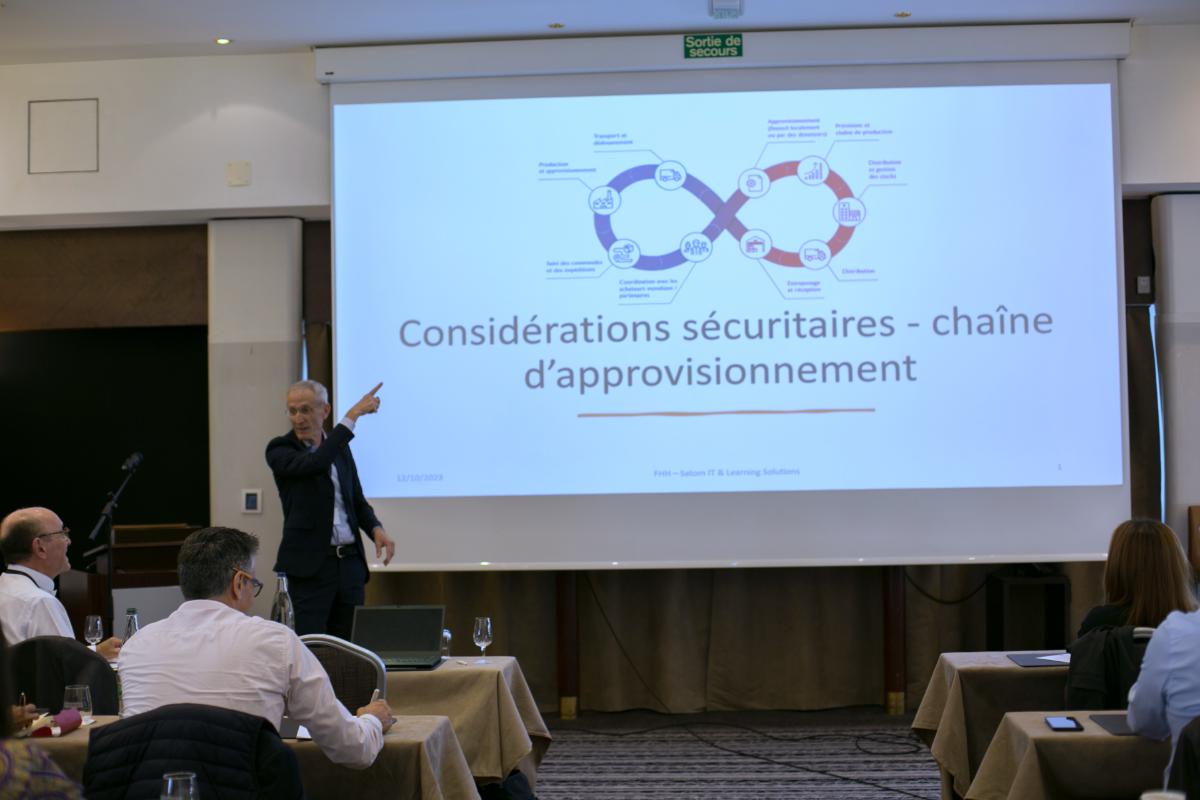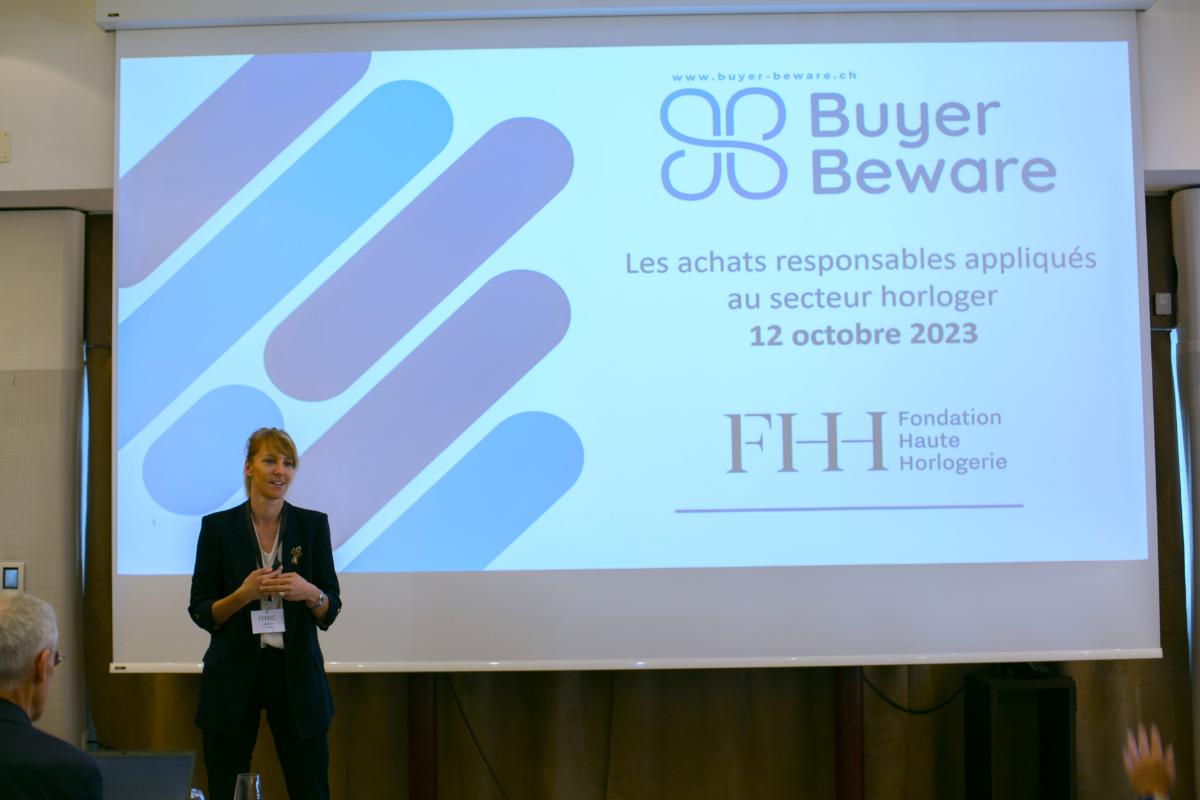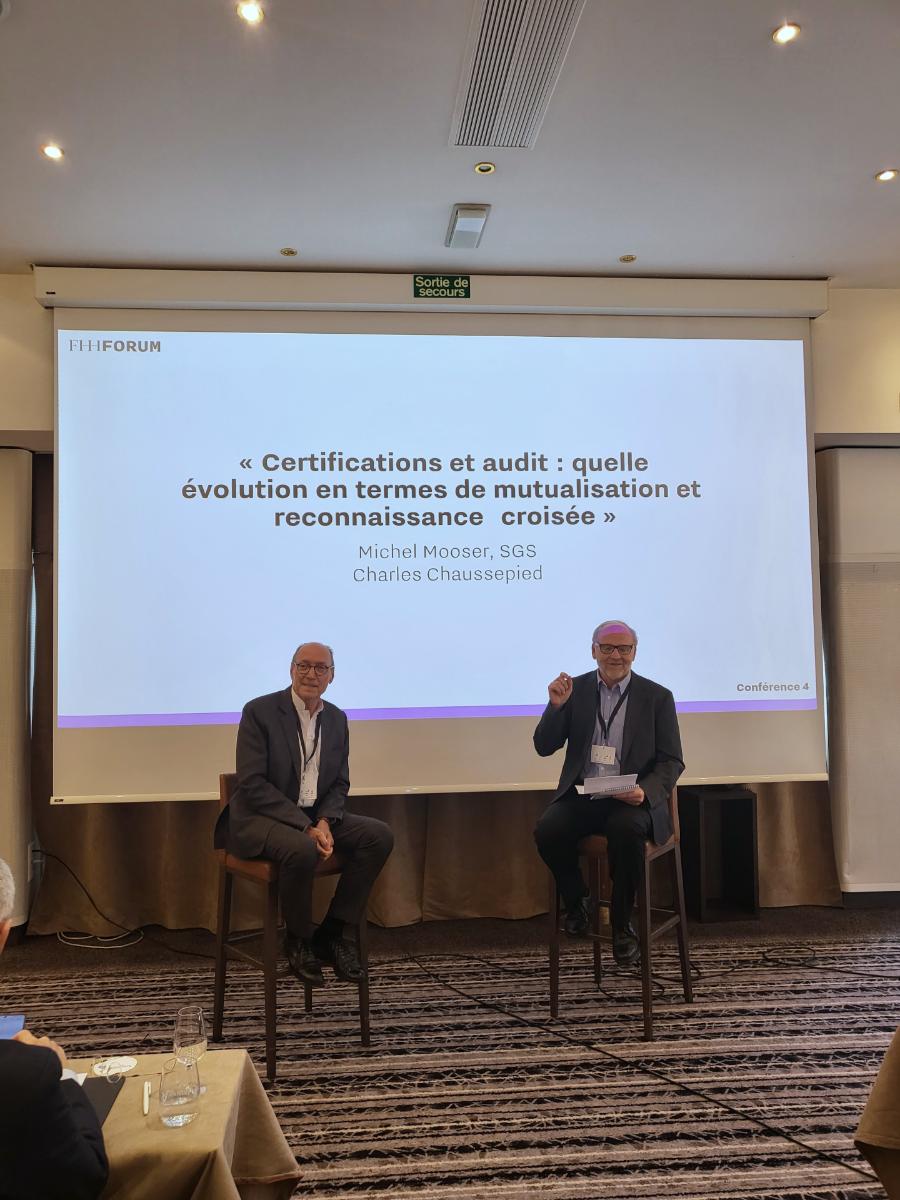True to its mission to inform and educate, the Fondation de la Haute Horlogerie organises seminars for professionals in the industry, with a particular focus on compliance-related topics. After a successful session in 2022, on the legal and regulatory framework for sustainable development, a second event took place in October 2023, again in Neuchâtel. Discussions covered data protection, cybersecurity and responsible procurement, and the session wrapped up with a round table on certification.
The day began with a reminder of the key takeaways from 2022: on the one hand, considerable advances towards greater sustainability have been made over the past twenty years, both in business and society at large. However, new risks have emerged, illustrated by the consequences of the war in Ukraine.
